Our members are specialists
Unlike general contractors that build a variety of products, WTBA members tend to be specialty contractors who excel in one of these areas:
- Aggregate production
- Asphalt paving
- Bridge building
- Concrete paving
- Earthmoving
Specializing in a specific area of transportation construction allows WTBA members to build quality infrastructure in the most efficient manner – providing value to the taxpayers of Wisconsin.
According to the Federal Highway Administration, every $1 billion invested by state governments in highway construction and improvements will support a total of 27,823 jobs. This includes:
- 9,537 on-site construction jobs
- 4,324 jobs in industries that either directly or indirectly supply materials and services needed for the construction projects
- 13,962 jobs supported when those employed at the construction site or in supplier industries spend their incomes
State Funding
Wisconsin has a 2-year budget process with each new fiscal year beginning on July 1. The process starts with agency budget requests submitted in the fall of each even-numbered year.
The Executive budget proposal is introduced in February of odd-numbered years, followed by legislative consideration and enactment in the spring and summer.
Federal Funding
Federal funds account for approximately 25% of Wisconsin’s annual transportation budget, with the vast majority invested in highway and bridge capital improvements.
The vast majority of federal funding is generated by the federal fuel tax, which is 18.3 cents per gallon on gasoline and 24.4 cents per gallon for diesel fuel. Other sources of revenue include a 12% truck sales tax paid by retailers, a heavy truck use tax paid by vehicle owners and a truck tire tax paid by manufacturers.
Distribution of federal funding is governed by a two-step process: Authorization and Appropriation.
Authorization is the process by which Congress and the President allow the federal government to collect taxes and spend it for a specific purpose. These are normally multi-year bills that establish program policies, funding formulas and annual spending caps for individual programs.
Appropriation is the process by which Congress and the President pass annual spending bills for discretionary programs for the federal fiscal year, which runs from Oct. 1 to Sept. 30. The President introduces an executive budget proposal for the upcoming fiscal year in February, after which the House and Senate must pass identical versions of the bills before submitting them to the President to be signed into law or vetoed. A program must first be authorized in order to receive an appropriation.
